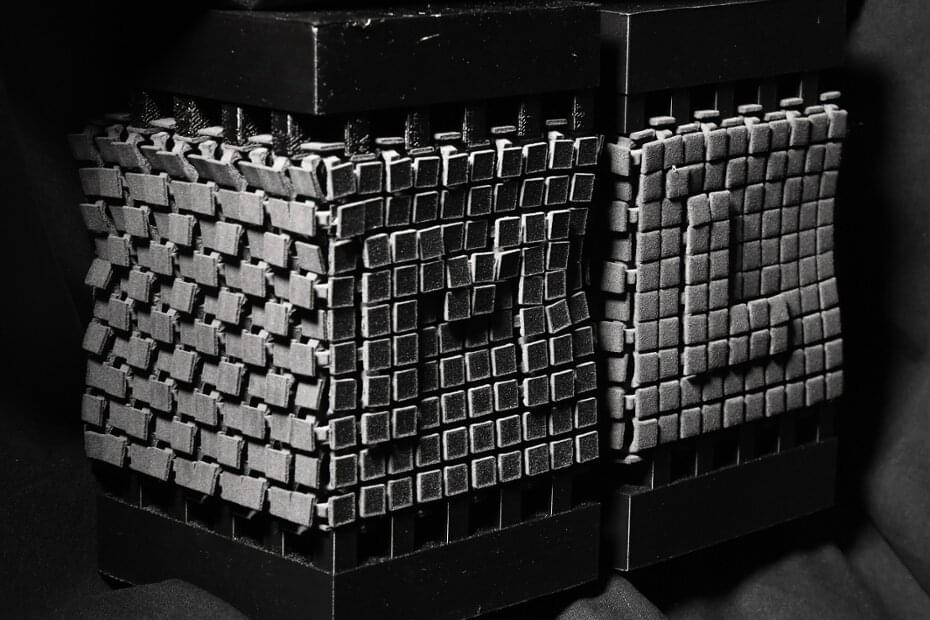Given a 3D piece of origami, can you flatten it without damaging it? Just by looking at the design, the answer is hard to predict, because each and every fold in the design has to be compatible with flattening.
This is an example of a combinatorial problem. New research led by the UvA Institute of Physics and research institute AMOLF has demonstrated that machine learning algorithms can accurately and efficiently answer these kinds of questions. This is expected to give a boost to the artificial intelligence-assisted design of complex and functional (meta)materials.
In their latest work, published in Physical Review Letters this week, the research team tested how well artificial intelligence (AI) can predict the properties of so-called combinatorial mechanical metamaterials.
